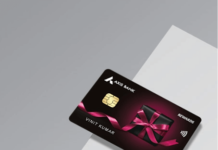Running a business requires adequate financing, particularly for capital expenses such as buying new equipment. The need for new equipment often means that your business is expanding. It would help if you scaled up capacities to meet the growing demand of your customers.
If your business is growing, raising funds will not be difficult. Several banks and non-banking financial companies (NBFCs) offer loans to small and medium enterprises (SMEs).

Here are seven types of business loans available to fund the purchase of new equipment.
1. Line of credit loan
This is a short-term loan and is ideal for small businesses. It means you will pay the interest from the day you borrowed the funds until the day you repaid the amount, both days included. The interest is applied to the number of days that the amount was borrowed. Such loans may be used to purchase inventory or to pay operating costs but are not beneficial for real estate transactions.
2. Installment loan
The lender sanctions the entire business loan amount, which is repayable in installments. You may repay the installments monthly, bi-weekly, quarterly, or any period that may be convenient. The funds may be used for many purposes, such as to meet operational expenses or capital requirements. The interest is payable from the disbursement date until the loan is repaid. There are no prepayment charges on such loans, and thus, you can benefit from lower interest savings by repaying sooner.
3. Interim loans
Building contractors generally avail of such loans to complete the construction of the projects. The building remains mortgaged until the repayment of the entire loan amount. The lenders assume lesser risks because such loans are secured against the buildings. Therefore, the interim business loan interest rates are lower than other facilities.
4. Balloon loans
Under this loan, only the interest is repaid until the final installment, where the principal is repaid in a balloon installment. Businesses that receive lump sum revenues at different periods generally take such loans. The interest rate on such loans is higher than that of credit facilities.
5. Letter of credit
A letter of credit guarantees payments, which your bank provides to your supplier in another country. This is a common short-term financing mode for businesses involving international transactions.
6. Secured loans
A secured loan for business is available on the mortgage of fixed or movable assets against the borrowed amount. The lenders assume lesser risk in such loans and offer a lower interest rate. Banks and NBFCs always prefer to offer secured loans.
7. Unsecured loans
A loan provided without mortgaging any asset against the borrowed amount is an unsecured loan. The interest on such loans is higher as the risk involved for the lenders is also higher. In default, the lender must rely only on legal assistance to recover the loan amount.
Having clearly understood the various types of fast business loans available, you may select the one that best suits your requirements. It would help if you compare different options to make the right decision.
Apply for a loan today and take your business to new heights of success.





